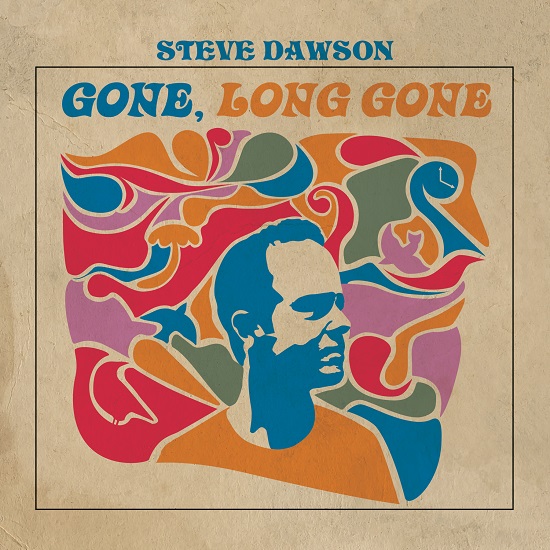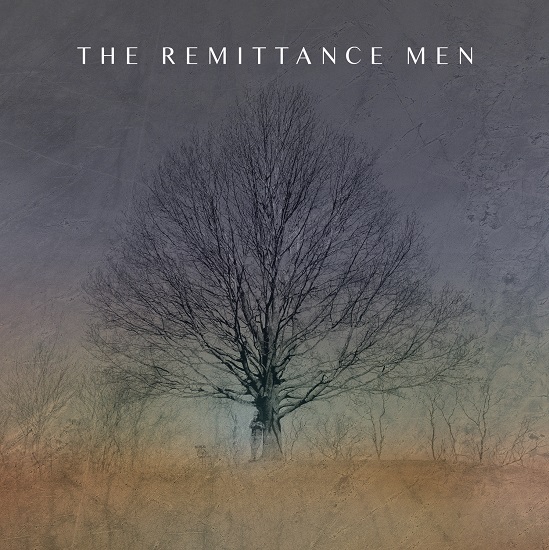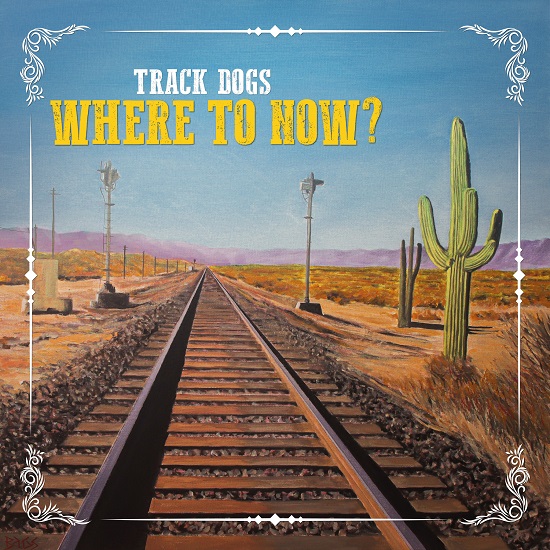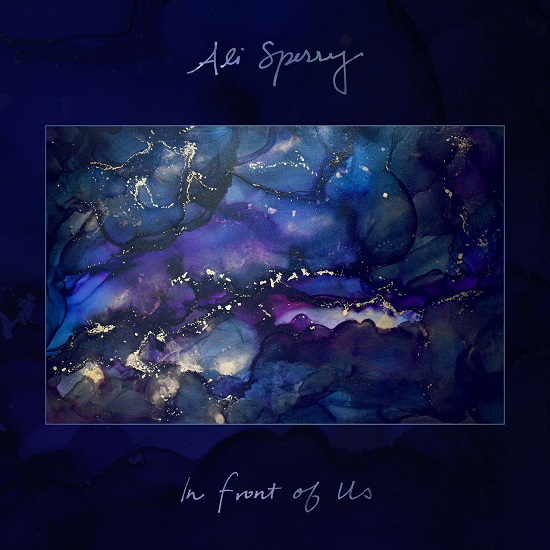
We’re still seeing and hearing albums created during the lockdown using remote technology; this one’s a bit different in that it’s the first of three albums recorded by Steve Dawson during the pandemic featuring songs that might otherwise never have been released. The ten songs on “Gone, Long Gone” reflect the eclectic nature of Steve Dawson’s work as a performer and producer. As a multi-instrumentalist and keen student of musical history, Steve brings a wide range of influences and musical knowledge to anything he does; his own album is no exception. Of the ten tracks, there are two contrasting instrumentals, showcasing Steve’s exceptional guitar skills, seven songs co-written with the brilliant Matt Patershuk, and one cover.
The cover is a song that everyone with any interest in music at all seems to love (apart from Rod Stewart, who apparently refused to sing on the Faces studio version of the song). Steve takes it at a very relaxed pace, building up to big harmonies in the chorus and showcase solos towards the end. It’s not quite as punchy as the original, but it’s an honest effort and a lovely homage. The two instrumentals demonstrate different facets of Steve’s work: his interest in Hawaiian music shines through “Kulaniapia Waltz”, creating an authentic feel with ukulele and steel guitar, plus the not-so-authentic pump organ while “Cicada Sanctuary” is a solo acoustic guitar piece inspired by hearing the noise of massed cicadas and being inspired to play something that fitted the mood. Both are very evocative mood pieces.
The remaining seven songs are the Matt Patershuk co-writes. Steve has always been wary of the collaboration process, but Matt’s a good friend and he’s a songwriter that knows how to write something that’s a bit different. The results are very impressive; “King Bennie had his Shit Together”, a fictionalised take on the life of Hawaiian steel guitarist King Bennie Nawahi, set against a backdrop of a jazzy bluegrass shuffle, tells an interesting story, cleverly pulling the listener into the first-person narrative of the tales of an old musician.
You can find historical musical references dotted throughout the album; the opener “Dimes” is a bit of fun that hints at Little Feat, “Bad Omen” and “6 Skeletons in a Car” (not as gruesome as it sounds) both have a brooding, menacing Southern groove feel while “I Just Get Lost” jumps into a chorus that strongly echoes The Beatles’ “Revolution”. You get the picture; there’s a lot of variety and you never quite know what’s round the next corner.
“Gone, Long Gone” is an album for people that want to actually listen to music, rather than passive consumers; the quality of the songwriting, playing and arrangement deserves much more than that. It’s out now on Black Hen Music (BHCD0096).
Here’s the official video for the album’s opener, “Dimes”:

“Scoundrels, Dreamers and Second Sons” is the debut album from The Remittance Men, a bunch of very gifted musicians from Boston, Massachusetts playing the songs of singer songwriter Tom Robertson (plus a couple of well-chosen covers). The band formed about two years ago as the pandemic broke and put together this collection of songs over that period. It’s difficult to pin down a specific genre; the song arrangements combine elements of the traditional string band with fiddle, mandolin, upright bass and acoustic guitar, keyboards, pedal steel and electric guitars from the country tradition, trumpets evoking Central America and even a horn section on “Lila Page 8”. It’s a wide palette and The Remittance Men fully explore its texture and colours. The varied elements are pulled together by the quality of Tom’s songs and his gravelly vocal delivery that never seems forced.
The songs are full of little vignettes; short descriptions of people and places fitting together to form the narrative framework of songs such “Sweet Thunder” following the route back home across America and “Lonely and Silent”, tracing the broken lives of people left behind as small businesses in rural America fell to the power of the multinationals; it’s not pretty, but it’s authentic. There are songs that feel deeply personal, without being particularly explicit, including the poignant opener, “1973 (Life on the High Seas)” and the historical “A Room in Birmingham England, 1919”.
The two songs that particularly grabbed my attention are probably the furthest from the traditional Americana canon, “Hacienda Santa Rosa” and “Lila Page 8”. “Hacienda…” uses Mexican rhythms and the inevitable trumpet to create a setting that works for the song’s lyrics. Moving in a completely different direction, “Lila Page 8” starts with a saxophone and trumpet intro and builds steadily to a full-on E Street Band/Asbury Jukes rock and soul arrangement with guitar solos flashing across the strident horns and big backing vocals. It’s a huge arrangement, and the heartfelt delivery suggests that this is another deeply personal song. Of the two covers, Tim Gearan’s delicate love song in triple time, “Nobody” follows “Lila…” contrasting with the massive arrangement and creates a low-key finish to the album. And the other cover is Tom Petty’s “Down South”, which fits in perfectly with pan-American feel of the album.
This is a fascinating debut from a writer with a gift for subtly combining a kaleidoscope of lyrical impressions against a backdrop of understated instrumental performances to create songs that just won’t quit.
“Scoundrels, Dreamers and Second Sons” is released on Friday March 25th on Blonde on the Tracks Records.
Here’s the video of “A Room in Birmingham England, 1919”:

It’s always good to hear new music from Track Dogs, particularly after the two years we’ve all just experienced. In common with a lot of recent releases, this is partly a lockdown creation and it’s another album that shows the way the creative impulse finds way under, above and around barriers. Instead of being hemmed in by enforced isolation, musicians have reached out across the world to become involved with each other’s projects. I always knew we’d find a good use for the internet; it just took a while.
Track Dogs are two Irishmen, and Englishman and an American, based in Madrid. That might sound like plenty of roots reference points right there from the English, Irish and American traditions, not to mention the Latin influences introduced by Howard Brown’s trumpet and flugelhorn. This time there’s a cover thrown in as well, a midtempo version of James Taylor’s “Carolina in My Mind”, which has even had a nod of approval from JT.
If you’ve heard the two previous albums, you’ll have some idea of what to expect of “Where to Now?”. Loads of variety in the musical arrangements and the lyrical themes, great instrumental performances and lovely four-part harmonies that hint at Crosby, Stills, Nash and Young. The title song hints at the uncertainties we all currently face, while framing the lyrics as advice to someone to carry on with their chosen path; we’re all facing uncertain futures now, personally and in wider society. The other thing you can expect from a Track Dogs album is the unexpected; something a little out of the ordinary.
“Donna Lola” is a great example. It’s a zydeco-tinted arrangement that rattles along at a high tempo as it tells the story of Lola Montez and her life and many loves. It’s driven along by some strident accordion and a guest vocal from Cathy Jordan; it’s impossible not to be drawn into the whirlwind. The song ends with a spacey psychedelic fadeout heavily soaked in reverb before dying away; it’s a strange and memorable close to a monster of a song. The album’s closing song (not counting the two bonus tracks) “Empty Tracks” is full of rhythms and sounds that imitate a train’s movement and sounds and it’s inspired by the hush that fell on the railroads in the days of the first lockdown; it’s not often that you discover an artist’s muse is a train.
The remaining songs on the album are packed with rhythmic and melodic invention based around the folk traditions of England, Ireland and America. Bluegrass features prominently, but there are elements of Latin rhythms and string sections to add some extra spice to the musical stew. You won’t be bored listening to “Where to Now?”.
And there’s more good news. Track Dogs are in the UK to promote the album this month. You can find the tour dates here. I have a feeling that they’re going to be even better live than on record, so try and catch them while you can.
“Where to Now” is out now on Mondegreen Records (MGRO122).
Here’s a link to one of the album’s two bonus songs, “At a Time Like This”:

I love an album that doesn’t give up all of its secrets at once; an album that makes you work a little bit (or a lot) to uncover its secrets. At first listen, Ali Sperry’s “In Front of Us” is a shiny, glittery production that tips over into pop territory with thunderous eighties floor toms, close-miked vocals and layer upon layer of harmony throughout the album. The album shimmers and sparkles with acoustic and electric guitars and arrangements that feature strings (including the often-neglected viola) and virtually every iconic keyboard in the history of pop music (Hammond, Fender Rhodes, Farfisa, Wurlitzer, Mellotron and Moog). The production is stunning and it’s easy to focus on that to the detriment of the lyrical messages of the album.
After a few listens, you get behind the shiny, happy production and into the real meaning of the songs. On the surface, many of the album’s ten songs are, on the surface, fairly simple stories of life in the music business or little autobiographical nuggets. The title song, which closes the album, is a heartfelt and gentle song about lifelong commitment and what it ultimately leads to, given a darker edge by the by the background of the pandemic. “Safe”, with its lovely strings (including that viola) opens enigmatically with a general promise to protect someone from the ills of the world before hinting at the song’s genesis, which was the shooting at a Las Vegas music festival in 2017 and the culture of gun ownership in the USA; the personal is the political.
“I Know You’re Scared” is built around the familiar songwriter’s theme of advice to a young or unborn child; ‘why would anyone want to be born into this?’ but gains another meaning when you discover that it was started on January 5th 2021 and finished on January 6th 2021 as the baying mob was storming The Capitol. There’s another theme running through the lyrics of the album, the music business archetype. “Climber” skewers the opportunist who uses people for as long as he needs them, “Excuses” exposes the person that we are always making excuses for, but who keeps screwing up anyway, while “Lucy” and “Cool Under Pressure” feature much more sympathetic portraits of an idealist and a true professional respectively.
As well as the striking and powerful arrangements, the album has another powerful weapon to help the delivery of the songs; Ali’s striking voice. She doesn’t need to force anything at all. At the higher end of her register, she sounds pure and clear and at the lower end, she sounds richer and a lot like Karen Carpenter. With the close-miked vocal high in the mix it sounds intimate, even against fairly busy instrumental backdrops.
The seductive Laurel Canyon instrumental arrangements and vocals on “In Front of Us” and the Eagles feel of the harmonies are powerfully contrasted with the almost subliminal political messages, making the messages all the more powerful because they have to be discovered by the listener. It’s a very rewarding feeling.
“In Front of Us” is released in the UK on Friday March 11th.
Here’s a live video of the opening song “Climber”:


